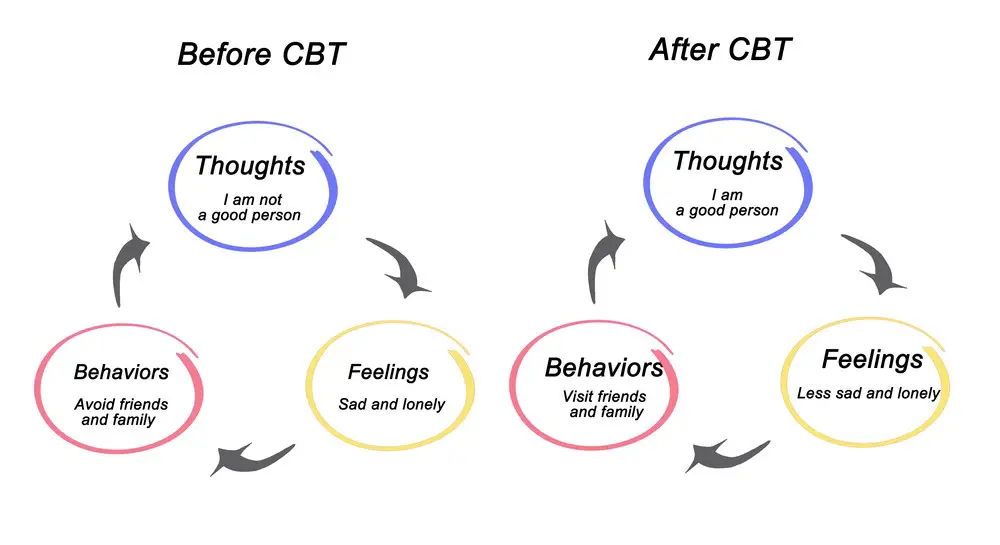Swallowing anxiety—yep, it’s a thing, and it’s more than just a hiccup in your day. For some, what should be a no-sweat process becomes a nerve-racking ordeal. Every bite is a battle, and the simple act of swallowing feels like a feat of courage.
In this chat, we’re going to dive into the depths of swallowing anxiety, check out what cranks up the tension, and understand how to overcome swallowing anxiety. By embracing the know-how, you can wave goodbye to that lump-in-the-throat drama and embrace every meal with gusto.
Key Takeaways:
- Understand what lights the fuse for swallowing anxiety.
- Learn tips to ease your mind and manage those mealtime moments.
- Grab the reins back from swallowing anxiety and steer your way to stress-free dining.
So, if you’re ready to kick swallowing anxiety to the curb and make friends with your food again, stick with me. Let’s get you back to chowing down without worry.
 Understanding Swallowing Anxiety
Understanding Swallowing Anxiety
What is Swallowing Anxiety?
Swallowing anxiety, also known as phagophobia, is a condition characterized by an irrational fear of swallowing.
Individuals with this condition may experience difficulty in initiating or completing a swallow, often fearing that they will choke or experience physical discomfort during the process.
This fear can manifest in various ways, including avoiding certain foods, experiencing physical tension, panic attacks, and having an increased heart rate when attempting to have a dry mouth and swallow.
The psychological and physical aspects of this condition.
Swallowing anxiety is not solely psychological but also has physical components. Individuals may experience muscle tension, an increased heart, rapid breathing rate, and other symptoms of heightened stress when faced with swallowing. The fear of choking or discomfort can exacerbate these physical anxiety symptoms further, creating a cycle of anxiety.
Causes and Triggers
Swallowing anxiety doesn’t just pop up out of nowhere. It’s got its roots and triggers, and they’re as varied as the folks who deal with them.
Digging into the Roots:
- Choking Scare: Have you ever had a real scare with a piece of steak? Or did you see someone else in that tight spot? Those moments can stick around, turning every meal into a potential replay.
- Anxiety Buddies: Sometimes, swallowing anxiety is just one part of a tag team with other anxiety disorders or OCD tendencies, all feeding into that fear of the fork.
- The Ghosts of Meals Past: Traumatic memories, like a nasty choking incident from your kiddo days, can take a seat at your dining table years later, uninvited.
It’s like your brain holds on to these memories and then hits the panic button every time you’re about to take a bite. Understanding these causes is step one in reclaiming your place at the table.
 Strategies to Overcome Swallowing Anxiety
Strategies to Overcome Swallowing Anxiety
Cognitive-Behavioral Techniques
Cognitive-behavioral therapy, or CBT, is like a mental gym for your brain. It’s all about working out those thought patterns that lead to swallowing anxiety and then flexing some new, healthier thinking muscles.
Here’s how CBT pumps up your mental strength:
- Mind Gym: You start by spotting those sneaky negative thoughts that make swallowing seem scarier than it is.
- Thought Takedown: Next, you learn to flip those thoughts on your head. Instead of thinking, “I’m going to choke,” you shift to “I’ve got this; I know how to chew and swallow.”
- Baby Steps: Through CBT, you’ll take small, measured steps toward what worries you, like starting with easy-to-swallow foods and gradually moving up the texture scale.
- Breathing and Mindfulness: It’s not just about thoughts; CBT throws in some chill-out techniques too, like deep breathing and mindfulness, to keep you calm and collected at mealtime.
Putting CBT into Action:
- Journal Journey: Write down what freaks you out about swallowing and what thoughts bubble up during meals.
- Chill Skills: Practice relaxation exercises before meals to turn down the anxiety dial.
- Exposure Therapy Escalator: Slowly introduce more challenging foods as your confidence grows, step by step.
- Positive Pep Talks: Give yourself a mental high-five with positive self-talk before, during, and after eating.
By lacing up your mental sneakers and getting into the CBT routine, you can work through swallowing anxiety one bite at a time. It’s about training your brain to handle the fork without fear.
Exposure Therapy
Exposure therapy is like the ultimate “face your fears” strategy. It’s not about diving into the deep end with weights on; it’s about dipping your toes in first and gradually wading deeper as you get more comfy.
How It Works with Swallowing Anxiety:
- Small Bites, Big Progress: Begin with the little stuff—foods that are soft and easy to swallow. Think of it as the shallow end of the pool.
- Texture Adventure: Once you’re cruising through the easy stuff, it’s time to introduce more textures, one spoonful at a time.
- Practice Makes Perfect: Regularly practice swallowing exercises. It’s like reps for your throat, getting stronger and more confident with each swallow.
Stepping It Up:
- Level Up: As you knock out each challenge, you level up to more complex foods, building your swallowing skill and shrinking that anxiety.
- Consistency is Key: Keep at it. Regular exposure helps your brain learn that swallowing isn’t the enemy.
Imagine exposure therapy as a ladder. Each rung takes you higher and builds your confidence. It’s not about speed; it’s about steady climbing. Before you know it, you’ll reach the top and look down at your fears way below, wondering why they looked so big in the first place.
 Lifestyle Changes and Self-Care Practices
Lifestyle Changes and Self-Care Practices
Relaxation and Stress Reduction
Relaxation techniques are like a soothing balm for swallowing anxiety. They help calm the stormy seas inside and make swallowing feel like smooth sailing.
Here’s how these relaxation heroes come into play:
- Deep Breathing: Imagine filling up a balloon in your belly. Inhale slowly, hold it for a beat and then let it out like you’re deflating that balloon. It’s simple and super effective.
- Progressive Muscle Relaxation: This is like a systematic shutdown of all the tension in your body. Tighten up each muscle group, then let it all go. It’s like telling your body, “Hey, we’re chilling out now.”
- Mindfulness Meditation: It’s all about being here and now. When you’re eating, eat. Notice the flavors, the textures, and the sensations. It’s like a zen moment with your meal.
Why Stress Management is a Game Changer:
- Keep Calm and Swallow On: Stress can be like pouring gasoline on your swallowing anxiety. Keeping it in check can make a world of difference.
- Healthy Habits: Exercise, good sleep, and coping strategies aren’t just good for your body—they’re great for your mind too.
Nourish to Flourish:
- Food is Your Friend: Start with gentle foods on the throat—smooth, creamy, or soft. These are your allies in the battle against swallowing anxiety.
- Stay Hydrated: Think of water as your throat’s best buddy. It keeps things sliding down smoothly.
- Customize Your Plate: Everyone’s different, so find what works. Maybe crunchy textures freak you out, or dry foods are a no-go. Tailor your menu to suit your comfort level.
- Get Expert Advice: A chat with a dietitian or doctor can set you up with a meal plan that’s like a personalized roadmap through the land of anxiety-free eating.
By weaving these relaxation and nutrition strategies into your daily routine, you’re building a fortress against swallowing anxiety. Each meal becomes less about the struggle and more about the enjoyment. And that’s a victory worth savoring.
 Time to Tag in the Pros: Knowing When to Seek Help
Time to Tag in the Pros: Knowing When to Seek Help
Sometimes, despite our best efforts, swallowing anxiety can stick around like a stubborn stain. That’s when it’s time to call in the cleanup crew—professional help. Here’s how you know you’re ready to reach out:
- Food Feels Frightening: If eating makes your heart race and sweat break out, it’s a sign you might need more than home remedies.
- Mealtime Meltdown: When every bite is a battle, and you’re avoiding meals, it’s time for some backup.
- Quality of Life Quake: If swallowing anxiety is shaking up your daily life, disrupting your routine, or messing with your mojo, a professional can help steady the ground.
- Isolation Invasion: When you start dodging dinner dates and social snacks because of anxiety, it’s time to bring in a pro to break down those walls.
**Seeking professional help isn’t about waving a white flag; it’s about equipping yourself with a stronger arsenal to tackle swallowing anxiety head-on. Whether it’s a therapist, a dietitian, or your doctor, they’re there to guide you through the rough patches and get you back to enjoying your food and your life. Remember, asking for help is a sign of strength, not weakness—it’s the bravest step you can take on your road to recovery.
Intrusive Thoughts: The Uninvited Dinner Guests
Intrusive thoughts can be like those pesky flies that buzz around your meal—unwanted, persistent, and downright annoying. When it comes to swallowing anxiety, these thoughts often crash the party, turning a simple meal into a minefield of stress. Let’s dish out some knowledge on this:
- Unwelcome Table Talk: Intrusive thoughts during meals can range from fears of choking to obsessive concerns about the texture or temperature of food.
- Mental Gatecrashers: These thoughts barge in without warning, and the more you try to shoo them away, the more they seem to stick around.
- Anxiety’s Plus-One: Swallowing anxiety often brings along intrusive thoughts, making it hard to focus on anything but the worry.
Combat Strategies:
- Thought Distraction: Engage in conversation, listen to music, or watch TV while eating to keep your mind busy.
- Mindful Eating: Practice being present with each bite, focusing on the flavors and sensations, rather than the act of swallowing.
- Thought Replacement: When an intrusive thought pops up, acknowledge it, then consciously replace it with a positive or neutral one.
Why Address Them:
- Peaceful Meals: Tackling these thoughts is key to restoring the joy of eating.
- Regain Control: By dealing with intrusive thoughts, you reclaim the headspace they’ve been occupying.
- Better Digestion: Stress-free eating can lead to better digestion and overall health.
Intrusive thoughts are stubborn, but with patience and practice, you can learn to show them the door. It’s about building a toolkit of techniques to keep these uninvited thoughts from ruining your mealtime experience. And remember, if the party gets too wild, there’s no shame in calling a professional to help clear the room.
Conclusion
In conclusion, intense anxiety, while challenging, is a condition that can be managed and overcome with the right strategies.
By understanding its causes and triggers, implementing cognitive-behavioral techniques and exposure therapy, and incorporating relaxation and stress management practices, individuals can regain their confidence in swallowing.
Diet and nutrition also play a role in promoting comfort during meals. It’s essential to seek professional guidance, treatment, and support when necessary to address this anxiety effectively.
Frequently Asked Questions
What exactly is swallowing anxiety?
Swallowing anxiety is a type of anxiety that specifically relates to the fear or difficulty in swallowing. It can stem from a past choking incident or be part of a broader anxiety disorder.
Can swallowing anxiety affect physical health?
Swallowing anxiety can indeed affect physical issues in several ways. When individuals experience swallowing anxiety, they often restrict their food choices and may avoid certain textures or types of food that trigger their anxiety.
This can lead to a limited and imbalanced diet, potentially to health conditions causing nutritional deficiencies. For instance, avoiding solid foods can lead to insufficient essential nutrients like vitamins and minerals, affecting overall health.
Furthermore, swallowing anxiety can result in reduced food intake and inadequate caloric consumption, potentially leading to weight loss and malnutrition.
Prolonged anxiety around the swallowing process may also cause physical symptoms like muscle tension in the throat muscles and chest, which can contribute to discomfort and even pain during eating.
It’s crucial to recognize the potential physical and mental health risks associated with swallowing anxiety and seek professional help when necessary to address both the anxiety and its impact on nutrition and overall well-being.
Addressing the psychological aspect of swallowing problems or anxiety is key to promoting a healthier relationship with food and better physical and mental health.
Can swallowing anxiety be cured?
While “cure” might be a strong word, swallowing anxiety can be managed and treated. Many people find relief through therapy, relaxation techniques, and gradual exposure to their fears.
How long does it typically take to see improvements using these strategies?
The timeline for improvements in swallowing anxiety can vary from person to person. It depends on the individual’s specific challenges and their commitment to implementing strategies consistently.
While some individuals may see progress relatively quickly, for others, it may take more time and patience. Professional guidance can help tailor a timeline, treatment plan, and approach to an individual’s needs.
When should I see a professional about my swallowing anxiety?
If swallowing anxiety is impacting your ability to eat, causing weight loss, or affecting your social life and mental health, it’s time to see a professional.
What kind of professional should I see for swallowing anxiety?
A mental health professional, such as a psychologist or psychiatrist, especially those with experience in cognitive-behavioral therapy, can be very helpful. In some cases, seeing a speech therapist specializing in swallowing disorders may also be beneficial.
Are there medications that can help with swallowing anxiety?
While there are no medications specifically for swallowing anxiety, medications used to treat anxiety in general may help alleviate some of the symptoms. It’s important to discuss this with a healthcare provider.
Can relaxation techniques really help with swallowing anxiety?
Absolutely! Techniques like deep breathing, progressive muscle relaxation, and mindfulness can reduce the stress and anxiety associated with swallowing.
Is swallowing anxiety common?
While it’s not as commonly discussed as other anxiety disorders, swallowing anxiety is a real and valid issue that many people face.
Can children experience swallowing anxiety?
Yes, children can also experience swallowing anxiety, often due to past choking incidents or fears. It’s important for parents to address these anxieties early on with professional help if needed.
How do I know if my swallowing difficulty is due to anxiety or a physical problem?
A healthcare professional can help determine the cause of swallowing difficulties. If physical causes are ruled out, anxiety may be the culprit.
What can I do at home to help manage swallowing anxiety?
Practice relaxation techniques; start with small and easy-to-swallow foods and slowly work up to more challenging textures. Always consult with a professional for a tailored approach.
Remember, these are just starting points for understanding and addressing swallowing anxiety. For personalized advice and treatment, contacting a healthcare professional is always the best action.
- Left Arm Pain and Anxiety: Understanding the Relationship - November 23, 2023
- Anxiety Paralysis: Coping with Overwhelming Stress - November 23, 2023
- Anxious vs. Nervous: Differentiating Emotions and Responses - November 15, 2023
This site contains affiliate links to products. We will receive a commission for purchases made through these links.


 Understanding Swallowing Anxiety
Understanding Swallowing Anxiety Strategies to Overcome Swallowing Anxiety
Strategies to Overcome Swallowing Anxiety Lifestyle Changes and Self-Care Practices
Lifestyle Changes and Self-Care Practices Time to Tag in the Pros: Knowing When to Seek Help
Time to Tag in the Pros: Knowing When to Seek Help
